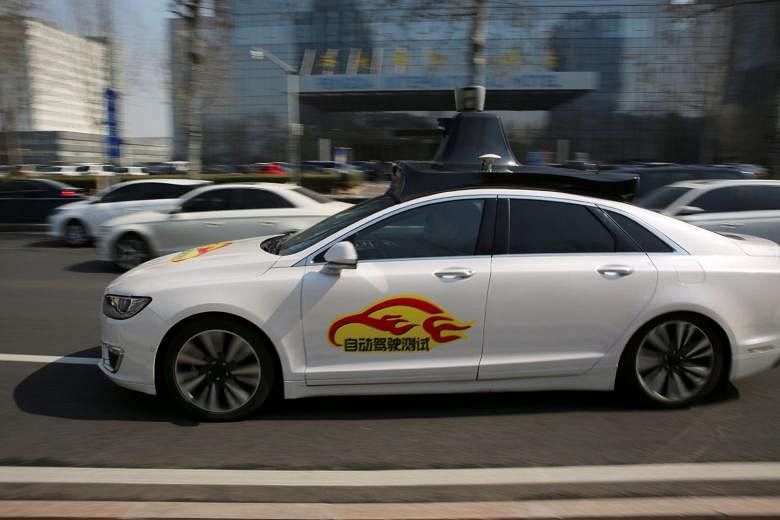SHANGHAI (REUTERS) - China has laid out national guidelines for testing self-driving cars as it looks to keep pace with the United States in a global race to develop autonomous vehicles, the China Daily newspaper reported on Friday (Apr 13), citing the country's industry ministry.
The rules lay out requirements that vehicles must first be tested in non-public zones, that road tests can only be on designated streets and that a qualified person must always sit in the driver's position, ready to take over control.
China is making a major push into autonomous smart vehicles, keen to have its own national champions in self-driving to compete with global leaders such as Waymo, the self-driving arm of Google parent Alphabet and Tesla.
Mr Xin Guobin, the country's Vice-Industry Minister, said China would slip behind rivals like the United States if it did not "firmly seize" initiative in the sector, which he called a key plank of Beijing "Made in China 2025" push.
"We will accelerate to build a strong manufacturing country, a strong country in science and technology with strong networks and transportation," he said in comments posed on the Ministry of Industry of Information Technology website.
Chinese cities including Beijing and Shanghai have previously announced local guidelines for self-driving tests, while Internet giant Baidu already has approval to test self-driving vehicles on city streets.
In the wake of two high-profile crashes in the United States involving Uber Technologies and Tesla, Mr Xin said China would emphasise safety as the "top priority" in testing for autonomous vehicles.
"To ensure the safety of road tests, we will not only not only require that road tests take place on prescribed streets, but also that the test driver sits in the driver position throughout, monitoring the car and the surrounding environment and ready to take control of the car at any time," he added.
"This is a lesson that we have learnt from the accidents faced by Uber and Tesla."
Fatal crashes last month involving the two US firms have raised scrutiny on self-driving globally and ramped up pressure on the industry to prove its software and sensors are safe.
Mr Xin added China should also push forward other technologies needed to support smart vehicles, including next-generation 5G communications networks and intelligent roads.

